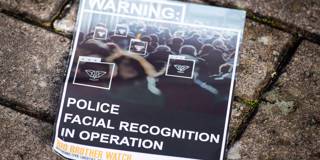Rather than submitting to a data-driven and AI-directed system that relies on surveillance and control through digital IDs, we should create more participatory frameworks that harness the power of civil society. Such approaches form the backbone of a strategy that uses human sociability to achieve humankind’s collective goals.
ZÜRICH – Proponents of digital identification see the COVID-19 pandemic as a once-in-a-century opportunity, with a potential “jackpot market” of nearly eight billion people. In these dangerous times, using digital IDs to help control the spread of the virus and eventually to manage the distribution of a vaccine is often deemed appropriate and necessary.
This view aligns with the broader ambition of providing a legal ID for everyone on the planet, particularly the poorest. The United Nations’ Sustainable Development Goal (SDG) 16 mentions the provision of a “legal identity for all” by 2030, and a “digital identity credential” is included in the UN Legal Identity Agenda 2020-2030. It seems that several high-level initiatives in this regard are underway, such as the ID2020 Alliance and possibly the World Economic Forum’s Global Centre for Cybersecurity, which involve some of the most powerful transnational organizations and corporations.
The efforts don’t stop there. The UN has launched several pilot projects that use digital IDs for refugee identification. Such ideas can quickly become reality on a national level, too: China’s Social Credit System, for example, makes use of digital IDs. In global e-commerce, a digital ID is assigned to people – and used to score each customer’s profitability and lifetime value.

ZÜRICH – Proponents of digital identification see the COVID-19 pandemic as a once-in-a-century opportunity, with a potential “jackpot market” of nearly eight billion people. In these dangerous times, using digital IDs to help control the spread of the virus and eventually to manage the distribution of a vaccine is often deemed appropriate and necessary.
This view aligns with the broader ambition of providing a legal ID for everyone on the planet, particularly the poorest. The United Nations’ Sustainable Development Goal (SDG) 16 mentions the provision of a “legal identity for all” by 2030, and a “digital identity credential” is included in the UN Legal Identity Agenda 2020-2030. It seems that several high-level initiatives in this regard are underway, such as the ID2020 Alliance and possibly the World Economic Forum’s Global Centre for Cybersecurity, which involve some of the most powerful transnational organizations and corporations.
The efforts don’t stop there. The UN has launched several pilot projects that use digital IDs for refugee identification. Such ideas can quickly become reality on a national level, too: China’s Social Credit System, for example, makes use of digital IDs. In global e-commerce, a digital ID is assigned to people – and used to score each customer’s profitability and lifetime value.